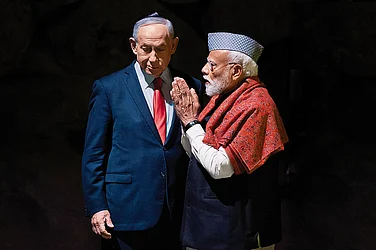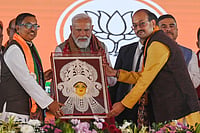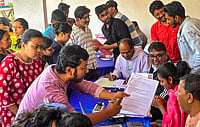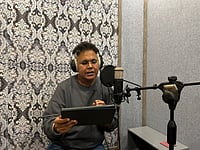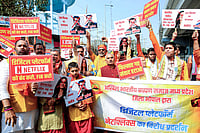The streets of Bangladesh have countless stories to tell. And as the country goes into general elections on January 7, the air is filled with anticipation and retrospection. History has seldom been kind to Bangladesh. In the five decades since its liberation, the country has traversed the economic breadth as one of the fastest-growing in South Asia and at the same time, across political fences, has seen custodians of democracy transform into threats. Prime Minister Sheikh Hasina of the Awami League looks to lock her fourth consecutive term and fifth overall, as Prime Minister, while the people of Bangladesh look at her as an ailing figment of a glorious revolutionary past, challenging the basic tenets of democracy. The legacy unsubtly bifurcates somewhere in the middle, tackling coats of varnish and stains -- perhaps only shielded by the family name.
The Developmental Breadth
Since coming into power in 2009, Hasina has overseen Bangladesh's rise from being a politically volatile and economically suffering state to the second-largest economy in South Asia. Rising from its global stature as a state surviving on foreign aid and donations in the post-liberation war era, the Hasina-led Awami League has pushed Bangladesh towards considerable economic stability.
Bangladesh’s per capita income has seen a three-fold increase. The country’s gross domestic product (GDP) stood at $250bn in 2017 and $455bn in 2024, according to the IMF, and last year clocked a growth rate of 6 per cent. Hasina has implemented measures like the establishment of Bangladesh Economic Zones which has augmented export-oriented industries and Foreign Direct Investments. According to a report by Al Jazeera, the garment industry has emerged as one of the main pillars of the Bangladeshi economy, providing jobs to 4.5 million people. It makes up 14 per cent of the GDP and nearly 80 per cent of the country’s exports worth $35bn.
Speaking at an event last year on 'New Economy and Society in Smart Bangladesh' organised by the World Economic Forum, Sheikh Hasina talked about how the country has achieved unprecedented success in various socio-economic indicators, during the Awami League's government. She further went on to mention that the country has been promoted from LDC to a developing country with the per capita income increasing to $2,824, from $543 only in 2006. The poverty rate has decreased from about 41.5 per cent to about 18.7 per cent and the extreme poverty rate has decreased from 25.5 per cent to 5.6 per cent.
Hasina, in her time as the Prime Minister so far, has also maintained fruitful diplomatic ties with countries amidst rising geopolitical turmoil. The US' position in South Asia has been defined by conscious attempts to check China's growing footprint. In this context, Hasina has managed to maintain the dynamic on the lines of stability with the US, while also being a member of the Belt and Road initiative, a China-led global infrastructure development strategy, as well as maintaining a perennially progressive relationship with India. She was also internationally praised for her tackling of the situation when Rohingya refugees were given asylum in Bangladesh in the wake of the genocide.
When Hasina took over as Prime Minister in 2009, she took control of a state plagued by political unrest, flagrant corruption, and autocratic military rule. She has been able to deal with Islamic militancy, radicalism, and extremist elements in Bangladesh with an iron fist. Delivering on her 2008 electoral promise, Hasina was successful in completely curbing the growth of the Bangladesh Jamaat e-Islami (BJI) and reintroducing 'secularism' to the Bangladeshi Preamble in 2011.
The Authoritarian Streak
What experts have called an almost one-way election on January 7, Sheikh Hasina looks to embrace her fifth term as the Prime Minister, signalling her morph from a person who fought for the country's democracy to an authoritarian figure. Fears are rising that under her, development has come at the cost of a free democracy where people are afraid to express their disapproval or even take to the streets with campaigns. They have been met with the ruling party's suppressive tools on all fronts of criticism, where people and critics have resorted to anonymity to bring to global notice, the culture of terror that has been the rule of the land for long.
Adding to the concern regarding Hasina's approach to suppressing political opposition, last year, supporters of Bangladesh Nationalist Party (BNP) -- the primary Opposition in Bangladesh -- clashed with security forces, leading to numerous incarcerations, torched police vehicles and public buses, and several people killed. The BNP who are boycotting the election like they did in 2014 and 2018, owing to Hasina's disapproval of handing over power to a caretaker government during elections. The Awami League and BNP's long-standing animosity has seen both parties get to a point of repressive retaliation.
According to a report on TIME by Charlie Campbell, the last two general elections were condemned by the US, the EU and others for significant irregularities, including stuffed ballot boxes and thousands of phantom voters. Khaleda Zia, the two-time former Premier and BNP leader, has been under house arrest on dubious corruption charges while her health continues to deteriorate. BNP workers have been hit by a staggering 4 million legal cases, while independent journalists and dissenters also complain of "vindictive harassment". According to critics, the upcoming election "is tantamount to a coronation and Hasina to a dictator."
It is all hush-hush in Dhaka as glass buildings rise higher and industries continue to bloom. Critics argue that while the GDP has grown, inequality has continued to grow, and the gaps continue to widen. The entire culture of 'inequitable growth' has continued to raise concerns. While the GDP has increased over the past decade, the last couple of years with the Russia-Ukraine War raging has put immense pressure on the country's economic anatomy with rising prices coupled with financial mismanagement across sectors. The 2022 protest saw people rallying on the streets calling for the resignation of Hasina because of the unaddressed issue of rising cost of living and fuel prices. According to critics, economic tremors continue to be felt in the run-up to Bangladesh's 12th general elections, while the opposition remains cordoned off and muted.









